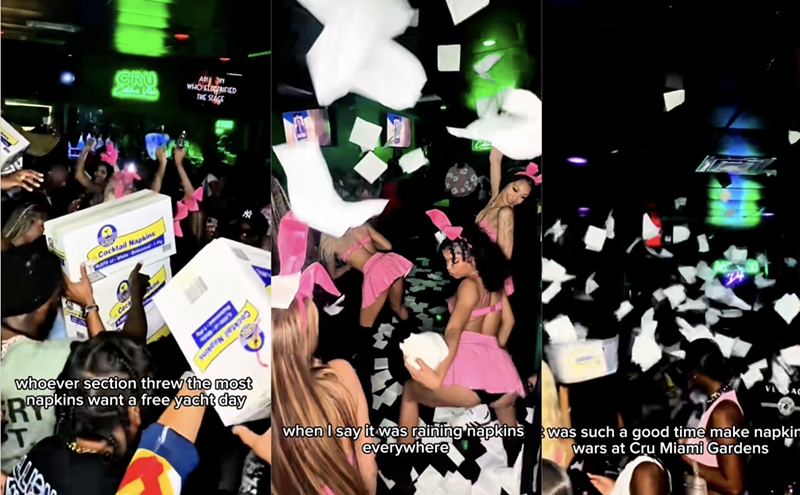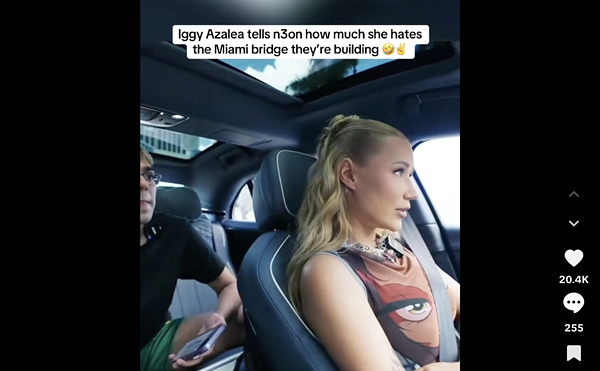Nearly two decades have passed since Chuck Palahniuk published his iconic, anti-materialistic novel Fight Club. Adapted by David Ficher into a 1999 film, the book and movie achieved cult status, fans begged Palahniuk for a sequel. The novel left our unnamed narrator in a mental hospital, shot in the face by his own hand, in an attempt to kill his delusion and alter ego Tyler. The film, meanwhile, exploded a skyline with pre-9/11 prescience as the bullet-holed narrator and his twisted romantic interest, Marla, held hands.
Then came news of Fight Club 2 as a ten-part comic book series, published by Dark Horse Comics. Then a Free Comic Book Day teaser and a precursor short story in Palahniuk’s Make Something Up: Stories You Can’t Unread, which releases May 26, ahead of the comic on May 27.
Make Something Up's “Expedition,” a short story set in 19th-century Germany, finds Tyler ushering another protagonist over surreal footing into a dark subterranean network, but not without humorous notes.
The comic picks up a decade after the book ending, where Marla and the narrator, now called Sebastian, are married and have a boy. Marla still fakes illnesses to attend support groups, while Sebastian suppresses Tyler via medications that slay his libido. That is, until Marla slips him placebos so she can get laid. Enter Tyler, who’s been secretly running the underworld all along via scheduled hypnosis sessions.
New Times recently spoke to Palahniuk for more on the unusual revival:
New Times: You create this surreal, era-spanning mythology with Tyler Durden in “Expedition.” But you balance the suffocating fear of being lost in underground tunnels in the dark with humorous lines like “Prithee pay heed, the first-most rule regarding the monster is thee must nevermore speak of meeting the monster.” Are you trying to establish a tone with your audience, to not take it so seriously? To get away from Fight Club’s anti-consumerism and self-realization messaging and more into this story about fathers and sons through eternity?
Chuck Palahniuk: Not just fathers and sons, but also the idea that Tyler isn’t just a mental aberration that occurred once in one person’s life. That Tyler is a thing that is reoccurring, as a kind of evil genie across time whose purpose is to destroy people’s lives in a specific way. With a very specific ending in the near future. Because that’s ultimately what the 10 issues are about. …
It’s that across time, Tyler has been working to estrange fathers and sons and even daughters and fathers so that eventually they’ll all follow Tyler. Kind of consolidating this army of fatherless children who’re now adults and will follow some fascist leader who happens to be Tyler.
Your parents split when you were in your early teens, and you and your siblings went to live with your grandparents. Was your relationship, then or before, tense with your father? Were you close around the time of his murder in 1999? And is exploring this father-son dynamic with “Expedition” and Fight Club 2 cathartic, therapeutic or merely curious?
Boy ... and of course this is just speculation. Because I don’t think anybody really knows anything very true about themselves. But my father had serial relationships throughout his life, I theorize, because he was always looking for his mother. Because his father had become unbalanced and killed his mother and then killed some of his siblings, and then ultimately killed himself.
But my father’s earliest memories are of being 3 years old and trying to find his mother, who has been shot to death, who’s dead. While at the same time he’s evading his father, who has the rifle and is trying to shoot him, my father. So my father spent his life kind of looking, I believe, for his mom. And the irony is that he finally finds this woman he’s madly in love with, and the man with the rifle shows up and kills them both. So there was a kind of a completeness to his murder. A spooky sort of completeness. ...
The woman that my father was dating when he was killed by her ex-husband, she had run a personals ad and the heading of the personals ad was “kismet.” Which I believe is Arabic for “fate.” So he answers this ad that’s headlined “fate” and it leads to the completion of this greatest childhood fear. I think all these things as we look into them so much, we find even more bizarre coincidences. ...
And as for me, boy, his absence for so much of my childhood kind of left me in a different situation. Kind of always looking for him. And God only knows how that will end.
In that regard, do you look at this work and that theme, and see much of yourself in it, or do you feel distant from it?
There’s a kind of revelation, a self-reveal about how the character’s default is anger. And anger is what has rescued him from going under, time and time again. …
And that was one of the most honest things I’ve ever written. I was shocked that I was putting that on the page. Because so much of my life up to this point has been being confronted by a problem or an obstacle, and then just developing this enormous rage that gets me past it.
There’s been concern over staining Fight Club’s “literary legacy,” as you put it. You’ve said Fox has rights to on-screen sequels, and that director David Fincher has optioned stage rights for a “big rock opera” for a new generation, with Trent Reznor’s help. As you fill out your own Fight Club universe with the new comics, will that work ultimately inform their narrative direction — like, is everyone looking at you for cues? Or do they all have rights to taking the story in their own direction?
As far as Fox, I think they might actually have the rights to take it in their own direction if they wanted to hook up with one of the television networks that’s interested in doing a series. But I think it would always behoove them to stay in my good graces, if only to help with the promotion. I don’t think they’d want to do anything with the property that would alienate me. …
Fincher is such a bright guy that I found myself just sort of rolling over and saying, “Have it your way,” because I knew that he was always going to be thinking so far ahead of me….
David has been consulting with Julie Taymor because of the kind of spectacle that she’s so known for with Spider-Man and The Lion King. I think that’s the kind of scale that David’s talking about.
– Matthew Schniper is an editor at the Colorado Springs Independent.
Chuck Palahniuk reads at the Chapman Conference Center, Miami Dade College Wolfson Campus Tuesday, May 26, at 7:30 p.m.; $33 includes signed copies of Make Something Up and Fight Club 2. Visit booksandbooks.com.

Audio By Carbonatix
[
{
"name": "GPT - Billboard - Slot Inline - Content - Labeled - No Desktop",
"component": "22004575",
"insertPoint": "2",
"requiredCountToDisplay": "2"
},{
"name": "STN Player - Float - Mobile Only ",
"component": "22595215",
"insertPoint": "2",
"requiredCountToDisplay": "2"
},{
"name": "Editor Picks",
"component": "17482312",
"insertPoint": "4",
"requiredCountToDisplay": "1"
},{
"name": "Inline Links",
"component": "18711090",
"insertPoint": "8th",
"startingPoint": 8,
"requiredCountToDisplay": "7",
"maxInsertions": 25
},{
"name": "GPT - 2x Rectangles Desktop, Tower on Mobile - Labeled",
"component": "23181625",
"insertPoint": "8th",
"startingPoint": 8,
"requiredCountToDisplay": "7",
"maxInsertions": 25
},{
"name": "Inline Links",
"component": "18711090",
"insertPoint": "8th",
"startingPoint": 12,
"requiredCountToDisplay": "11",
"maxInsertions": 25
},{
"name": "GPT - Leaderboard to Tower - Slot Auto-select - Labeled",
"component": "17720761",
"insertPoint": "8th",
"startingPoint": 12,
"requiredCountToDisplay": "11",
"maxInsertions": 25
}
]











